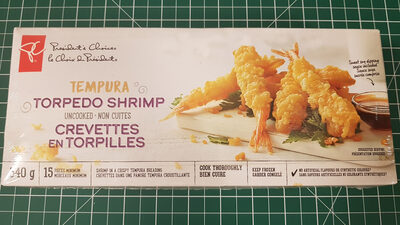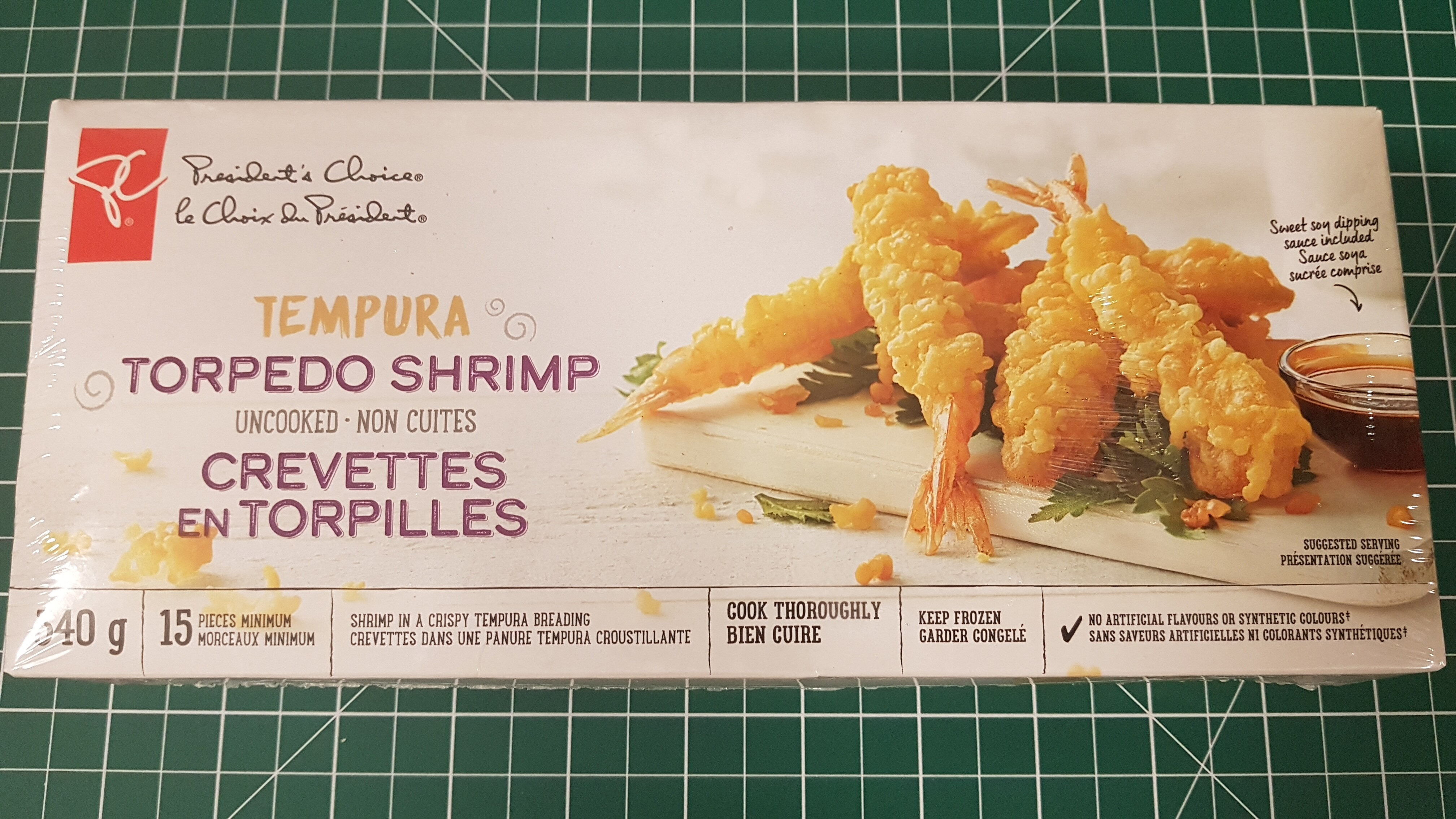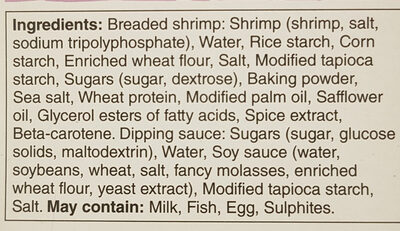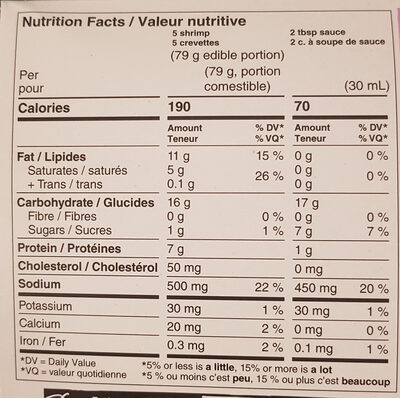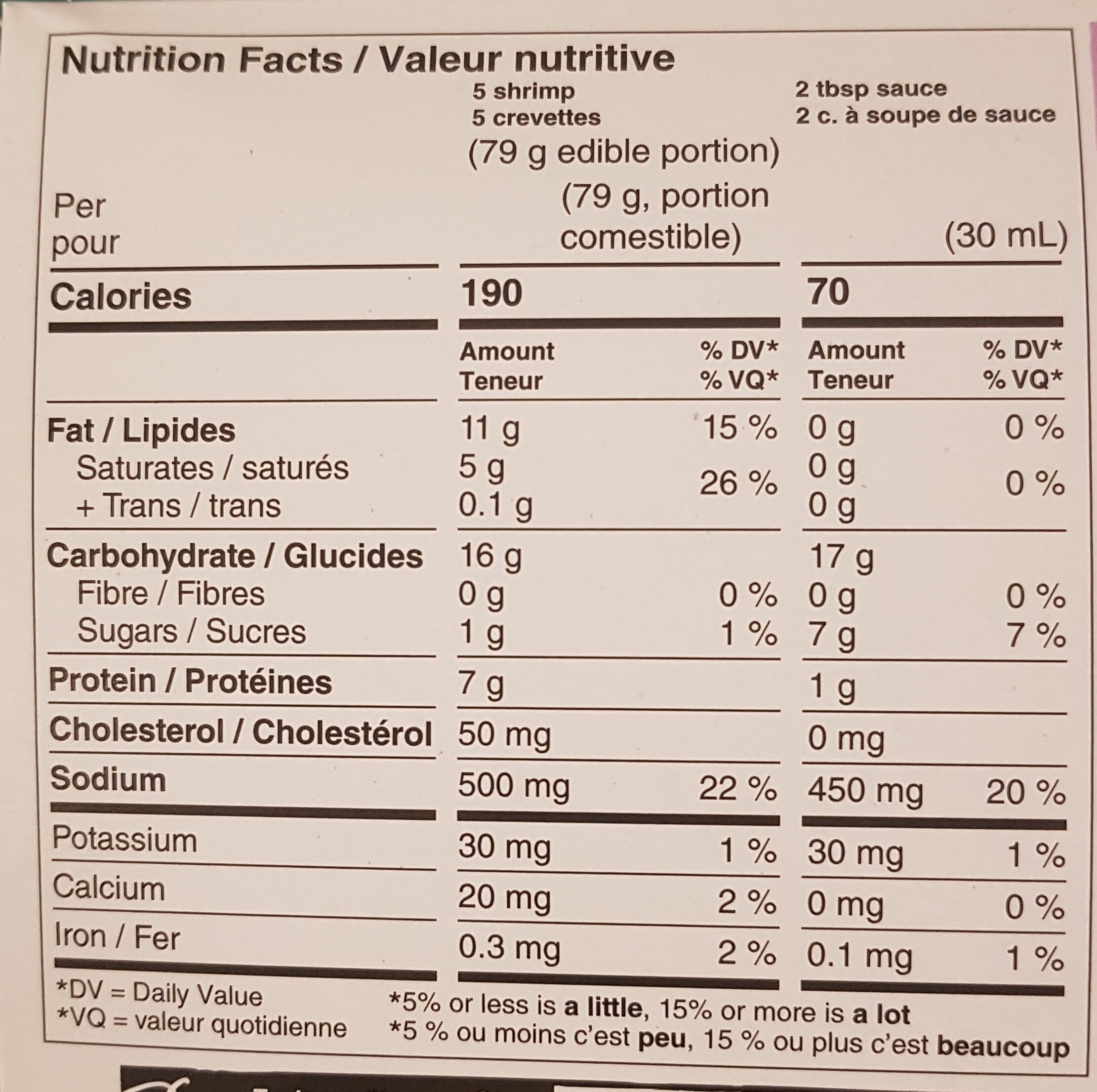Tempura Torpedo Shrimp with Sweet Soy Dipping Sauce - President's Choice - 340 g
This product page is not complete. You can help to complete it by editing it and adding more data from the photos we have, or by taking more photos using the app for Android or iPhone/iPad. Thank you!
×
Barcode: 0060383156725 (EAN / EAN-13) 060383156725 (UPC / UPC-A)
Quantity: 340 g
Packaging: Cardboard
Brands: President's Choice
Labels, certifications, awards: No colorings
Manufacturing or processing places: Vietnam
Link to the product page on the official site of the producer: https://www.presidentschoice.ca/product/...
Stores: NoFrills
Countries where sold: Canada
Matching with your preferences
Environment
Packaging
Transportation
Threatened species
Report a problem
Data sources
Product added on by openfoodfacts-contributors
Last edit of product page on by packbot.
Product page also edited by ecoscore-impact-estimator, off.e29be488-07cf-4358-8a73-32f53b3b56e5, roboto-app.
